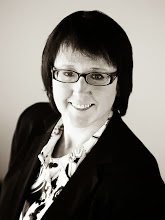Every rate is a custom rate-quote. Just because your friend may have gotten 3.875% on a fixed rate, doesn't mean you can get less than 5.375%. Why? You've got to be careful. Deal with someone you can trust or that was referred to you. On-line brokers and internet sites can be verey dangerous. This doesn't mean you can't find a legitimate one by any means, but be very cautious. It's always better to deal with someone you were referred to.
Rates can be different from one borrower to the next. For example: If a 10 year fixed happenes to be 3.875% there are several things that you should know.
The APR - This is not the rate you get for the term of the loan but it's very important. It tells you if there are a lot of fees attached to the loan. The APR will always be higher than the note rate you get because some of the closing costs are "finance charges". The more charges you have, the higher the APR. Keep an eye on the APR figure. It goes up if you need mortgage insurance because you don't have 20% equity. If it's considerably higher, then the rate they quoted you isn't as low as you though. I can give you a 3.75% fate fixed for 30 years, but you'll be paying so many points to get that rate, you really aren't getting a 3.75% rate because you paid THOUSANDS in fees to get it.
Rates start at a certain percentage. With all the changes in the mortgage industry, there are pricing "hits". Some examples that may make your rate higher than the low rate your friend said they got:
1) Credit scores: Today, lenders want over 720 for credit scores. Anything less can cause your rate to be substantially higher and may rule out getting a loan entirely. It's almost impossible to get a loan with a credit score less than 620 right now.
2) Purpose of the loan: Your best rate is going to be if you are purchasing a home or refiancing the existing balance and you have some equity and a great credit score. Your rate started going up as the equity is less, and if you are taking any cash out of the transaction to consolidate bills, combine a 1st and 2nd, or do home improvements, you will pay more.
3) Waiving escrows: There is almost always a fee to waive escrows (Pay your taxes and insurance on your own and not with your payment).
4) Loan size: The smaller the loan, the higher the rate. Doesn't sound fair, but the amount of work is the same, so to cover the costs of lenders doing the loan, on small loan sizes, there may be a higher rate or more fees.
5) Credit scores: You get hit twice for credit score. There is a straight hit depending on credit score, and then on a cash-out refinance, there is an additional hit based on your equity and credit score too.
You might actually get a better rate if you have a lower score and mortgage insurance than the same score and 20% equity.
Costs are another thing that's hard to compare. Rates change daily, if not several times per day. If you got one rate on a Monday and call another lender on Tuesday, the Monday lender can't give you that rate on Tuesday anyway.
One good thing about the rediculously hard-to-understand new good faith estimate is that once a lender gives you a good faith estimate, there are restrictions on them changing these fees. That's why until you lock into a rate with a lender, you'll probably not get a good faith estimate. Even though it's called an estimate, lenders are bound by these figures and there is little or no opportunity to revise them.
It's a very confusing industry, and I feel for all you borrowers out there trying to get a clear picture of what rates are and what financing will cost.
Just remember - IF IT SOUNDS TOO GOOD TO BE TRUE - IT IS !!!!!!!!!
Mortgages are relatively standardized now, so everyone has these adjustments to rate. If you would like help trying to manouver through this confusing minefield we call mortgage financing, just shoot me an e-mail. I'm not going to feed you a line of bologna to get your loan. My advice is free.
Jolyn the Mortgage Expert
The views and opinions of Jolyn Oelfke are not the views of Guaranty Mortgage or Guaranty Bank.
Friday, July 16, 2010
Subscribe to:
Post Comments (Atom)

No comments:
Post a Comment